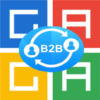One of the main reasons why a website is important for import-export businesses is that it serves as a digital storefront. With a well-designed website, businesses can showcase their products and services to a global audience. This allows them to reach potential customers who may not have been aware of their offerings otherwise. A website also provides businesses with the opportunity to provide detailed information about their products, such as specifications, pricing, and availability, which can help potential customers make informed purchasing decisions.
Additionally, a website can enhance the credibility and professionalism of an import-export business. In today’s digital age, consumers and business partners often turn to the internet to research and vet potential suppliers. A well-designed website can instill trust and confidence in potential customers, as it demonstrates that the business is legitimate and serious about its operations. Furthermore, a website can serve as a platform for businesses to showcase their certifications, awards, and customer testimonials, further bolstering their credibility.
Furthermore, a website can greatly enhance the efficiency and convenience of conducting business for import-export companies. With an e-commerce functionality integrated into the website, businesses can streamline the ordering and payment processes. Customers can browse through the available products, select the ones they need, and complete the purchase online, all from the comfort of their own homes or offices. This not only saves time and effort for both the business and the customer but also allows for transactions to take place outside of traditional business hours.
Moreover, a website can serve as a powerful marketing tool for import-export businesses. Through search engine optimization (SEO) techniques, businesses can increase their online visibility and attract more potential customers. By optimizing their website for relevant keywords and providing valuable content, businesses can improve their search engine rankings and drive organic traffic to their website. Additionally, a website can be integrated with various social media platforms, allowing businesses to engage with their target audience and promote their products and services through posts, videos, and other forms of content.
In conclusion, a well-designed and functional website is crucial for import-export businesses in today’s globalized world. It serves as a digital storefront, enhances credibility and professionalism, improves efficiency and convenience, and acts as a powerful marketing tool. By investing in a website, import-export businesses can expand their reach, attract more customers, and ultimately, grow and thrive in this competitive industry.
Not only does having a website for an import-export business allow you to reach a global audience, but it also provides you with the opportunity to establish your brand presence in different countries and regions. A well-designed website with a professional look and feel can help build credibility and trust among potential customers, regardless of their location.
In addition to showcasing your products and services, your website can also serve as a platform for providing valuable information to your target audience. By creating high-quality content such as blog posts, articles, and guides related to your industry, you can position yourself as an expert in your field and attract potential customers who are looking for information and solutions.
Furthermore, having a website opens up new avenues for marketing and advertising your import-export business. You can leverage various online marketing channels such as social media, email marketing, and paid advertising to promote your products and services to a wider audience. These channels allow you to target specific demographics and interests, ensuring that your marketing efforts are reaching the right people.
Another advantage of having a website is the ability to provide personalized customer support and assistance. Through features such as live chat, contact forms, and FAQs, you can easily communicate with potential customers and address their queries and concerns in a timely manner. This level of responsiveness and accessibility can help build customer loyalty and satisfaction, leading to repeat business and positive word-of-mouth referrals.
Lastly, a website can also serve as a platform for conducting e-commerce transactions. By integrating secure payment gateways and online shopping carts, you can enable customers to make purchases directly from your website. This not only streamlines the buying process for customers but also opens up new revenue streams for your import-export business.
In conclusion, having a website for an import-export business offers numerous advantages in terms of global reach, brand establishment, marketing opportunities, customer support, and e-commerce capabilities. It allows you to expand your customer base, attract organic traffic, establish credibility, provide valuable information, market your products effectively, offer personalized customer support, and conduct online transactions. Therefore, investing in a well-designed and optimized website is essential for success in the import-export industry.
Furthermore, a well-designed website can also contribute to building credibility by showcasing your expertise and knowledge in the import-export industry. You can create a blog section on your website where you regularly post informative articles, industry insights, and tips for customers. This not only demonstrates your expertise but also shows that you are committed to providing value to your customers beyond just selling products.
In addition to providing information about your business and industry knowledge, a professional-looking website can also instill trust in potential customers by ensuring that their personal and financial information is secure. Implementing secure payment gateways, SSL certificates, and privacy policies on your website can give customers peace of mind that their sensitive information will be protected during transactions.
Moreover, having a website that is user-friendly and easy to navigate can also contribute to building trust with potential customers. A well-organized website with clear and intuitive navigation can make it easier for customers to find the information they need, browse your product offerings, and make purchases. On the other hand, a poorly designed website with broken links, slow loading times, and confusing layouts can create a negative impression and lead potential customers to question your professionalism and reliability.
Overall, a well-designed and professional-looking website can play a crucial role in building credibility and trust in the import-export industry. By providing detailed information about your business, showcasing your expertise, ensuring security, and offering a user-friendly experience, you can establish yourself as a reliable and trustworthy partner for potential customers.
4. Streamlined Communication
Effective communication is crucial in the import-export business, as it involves dealing with customers, suppliers, and logistics providers from different countries and time zones. A website can streamline communication by providing contact forms, live chat features, or even integration with customer relationship management (CRM) systems.
By offering multiple channels for communication, such as email, phone, or social media, you can make it easier for potential customers to get in touch with you and inquire about your products or services. This can lead to faster response times and improved customer satisfaction.
Moreover, a website can also serve as a central hub for all communication related to your import-export business. Instead of juggling between different platforms and tools, customers, suppliers, and logistics providers can simply visit your website to find the information they need and reach out to you. This not only saves time but also ensures that all communication is consolidated and easily accessible.
Additionally, with the integration of CRM systems, you can efficiently manage and track all customer interactions. This allows you to keep a record of inquiries, responses, and any follow-up actions required. By having a centralized system in place, you can ensure that no customer query goes unanswered or gets lost in the communication process.
Furthermore, live chat features on your website can provide real-time support to potential customers. This allows them to get immediate answers to their questions or concerns, eliminating the need for back-and-forth emails or waiting for a response. The convenience and efficiency of live chat can significantly enhance the customer experience and increase the likelihood of closing deals.
Overall, a well-designed website with streamlined communication channels can greatly benefit your import-export business. It not only facilitates efficient communication with stakeholders but also helps you build strong relationships and provide exceptional customer service. By investing in a website that prioritizes communication, you can differentiate yourself from competitors and position your business for success in the global market.
5. Competitive Advantage
In a highly competitive industry like import-export, having a website can give you a significant advantage over competitors who do not have an online presence. A well-designed website that is optimized for search engines can help you outrank competitors in search results and attract more potential customers.
Additionally, a website allows you to stay updated with the latest industry trends and market demands. You can easily update your website with new products, pricing information, or any other relevant updates. This flexibility and agility can give you an edge over competitors who rely on traditional marketing methods.
Moreover, a website provides a platform for you to showcase your expertise and build credibility in the industry. By creating informative and engaging content on your website, such as blog posts, articles, or case studies, you can establish yourself as a thought leader and gain the trust of potential customers. This trust can be a crucial factor in their decision-making process, especially when choosing between multiple competitors.
Furthermore, a website allows you to expand your reach beyond your local market. With an online presence, you can target customers from different regions or even countries. By incorporating multilingual features into your website, you can cater to a diverse audience and tap into new markets. This global reach can open up new opportunities for growth and revenue generation.
Additionally, having a website enables you to provide better customer service and support. Through your website, you can offer various self-service options, such as FAQs, knowledge bases, or online chatbots. These resources can help customers find answers to their questions quickly and efficiently, improving their overall experience with your business. Moreover, you can also collect feedback and reviews from customers directly on your website, allowing you to address any issues promptly and demonstrate your commitment to customer satisfaction.
In conclusion, a well-designed and optimized website can provide you with a competitive advantage in the import-export industry. It allows you to outrank competitors in search results, stay updated with industry trends, showcase your expertise, expand your reach, and provide excellent customer service. Investing in a website is not only a necessity in today’s digital age but also a strategic move that can propel your business ahead of the competition.


